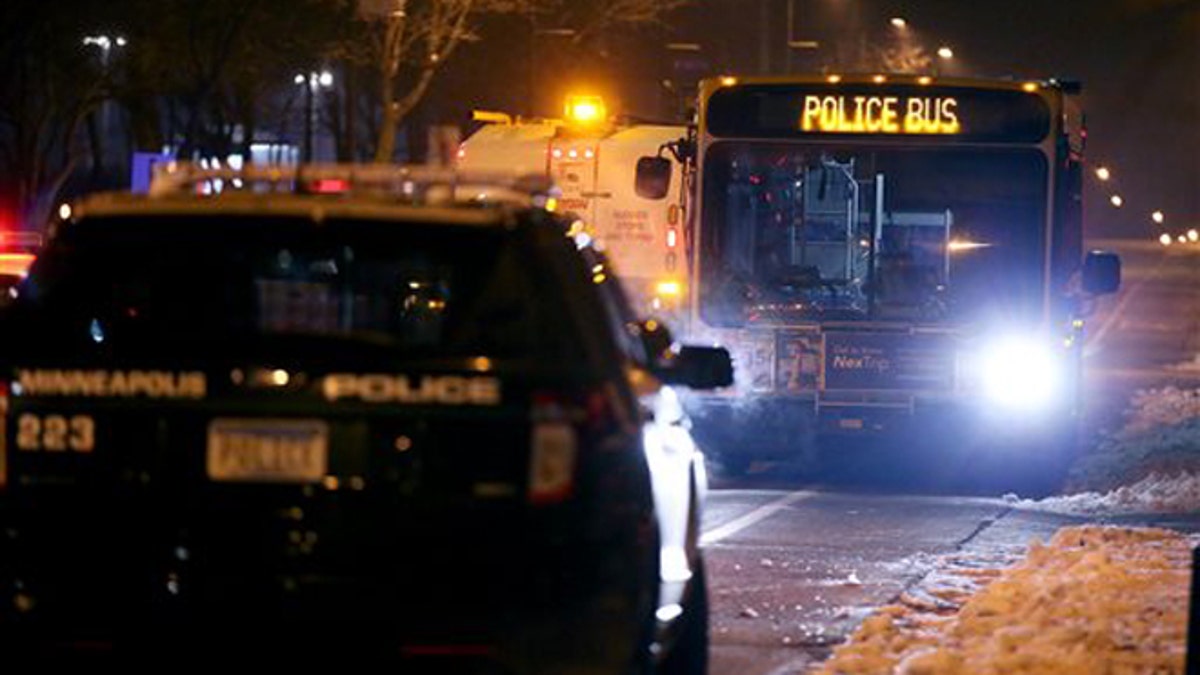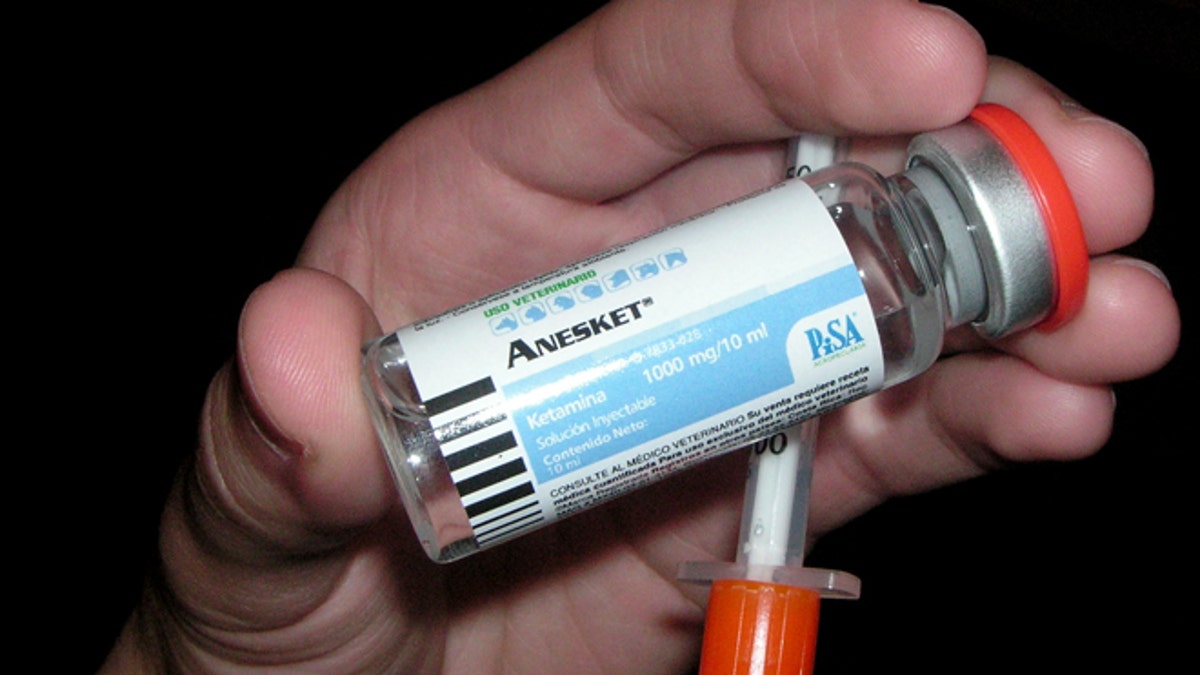
Dec. 3, 2015: Minneapolis Police make their way around the 4th Precinct after they cleared the protesters and their encampment in Minneapolis. (Elizabeth Flores/Star Tribune via AP)
The Minneapolis Police Department was advised Thursday to create guidelines and receiving training on how to deal with emotionally disturbed people following a controversy in which the city's police officers were pressuring paramedics to sedate people with ketamine, a so-called "date rape drug."
The Office of Police Conduct Review (OPCR) presented its findings to City Council members, which included instances of cops even holding people down during the injections, the Minneapolis Star Tribune reported.
Ketamine is considered a powerful tranquilizer capable of stopping a person’s heart or breathing and is classified as a “date rape drug” in the Minneapolis police manual, according to the paper.

A vial of ketamine anaesthetic. (Wikimedia Commons)
The OPCR report detailed multiple instances where the police asked the paramedics to use the drug to deal with emotionally disturbed people.
Between 2015 and 2017 in particular, Minneapolis police officers “urged” paramedics to inject people with the drug even though, in some cases, the person was already restrained or “no apparent crime had been committed,” the Minnesota Spokesman-Recorder reported.
In one example, police were responding to a call about a possible suicide. After the authorities found the person sleeping, they handcuffed the person, requested the injection and laughed as paramedics were sedating the individual.
In another incident, police restrained an alleged jaywalker who verbally assailed the police officers. After actively resisting arrest and scratching one of the officers, the suspect was punched by an officer and was injected with ketamine against his wishes. One police department employee described ketamine as “the good stuff,” according to the Star Tribune.
The use of ketamine as an emergency sedative skyrocketed in recent years, rising from just two occasions in 2010 to more than 60 last year. Out of all the cases where the date rape drug was used, 40 percent of the sedated people were black, 39 percent white and 10 percent American Indian. The majority of people were male.
The backlash over the use of ketamine as a sedative prompted the police to issue an order in May to “never suggest or demand” that paramedics sedate a suspect during a police call.
But the newly released report is urging for additional changes to the protocol in a bid to avoid the repetition of the controversy.
Two out of seven recommendations suggest the city is responsible to advise the public that an encounter with the police and paramedics may draw them into emergency medicine studies, the report said.


